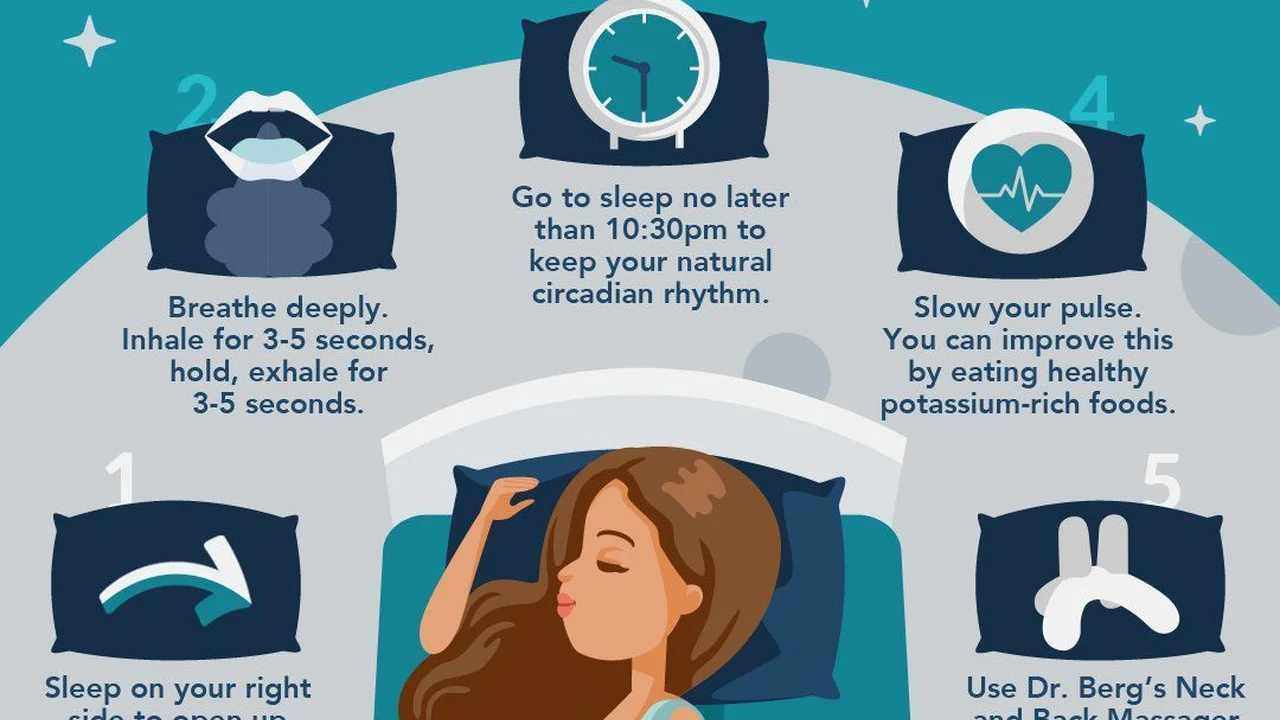5 Foods to Avoid for Optimal Gut Health

Identify 5 key foods that can negatively impact your gut health. Understand the effects of processed foods, sugar, and artificial sweeteners. Improve digestion and overall well-being by making informed dietary choices.
Understanding Gut Health and Its Importance
Okay, let's talk gut health. It's not just about avoiding embarrassing moments after that questionable street taco. Your gut, or more scientifically, your gut microbiome, is a bustling ecosystem of trillions of bacteria, fungi, viruses, and other microbes. Think of it as a rainforest inside your digestive system. This rainforest plays a HUGE role in your overall health. A healthy gut supports a strong immune system, helps you absorb nutrients from your food, and even influences your mood and brain function. Seriously, it's that important. When your gut is happy, you're generally happier and healthier too. But when things go wrong... well, that's where the trouble starts.
The Culprits: 5 Foods Damaging Your Gut Microbiome
So, what are the villains in this gut health drama? What are the foods that can wreak havoc on your delicate gut ecosystem? Here are 5 of the biggest offenders:
1 Processed Foods: The Gut's Public Enemy Number One
Processed foods are practically designed to be bad for you. They're often loaded with unhealthy fats, added sugars, and artificial ingredients. These ingredients can disrupt the balance of bacteria in your gut, leading to inflammation and a weakened immune system. Think about it: things like packaged snacks, fast food, and sugary cereals. They're convenient, sure, but they offer very little nutritional value and a whole lot of gut-busting potential.
Why are they so bad? Well, processed foods are often stripped of fiber, which is essential for feeding the good bacteria in your gut. Without fiber, those good guys starve, and the bad guys thrive. This imbalance can lead to a condition called dysbiosis, which is basically a fancy word for "your gut is out of whack."
2 Sugar: The Sweet Poison for Your Gut
Sugar is another major player in the gut health destruction game. Excessive sugar intake can feed the harmful bacteria and yeast in your gut, leading to inflammation and a weakened immune system. And it's not just added sugar in candy and soda; it's also hidden in many processed foods, sauces, and even seemingly healthy snacks.
When you consume too much sugar, it can lead to an overgrowth of Candida, a type of yeast that naturally lives in your gut. An overgrowth of Candida can cause a range of symptoms, including bloating, fatigue, and even brain fog. So, cutting back on sugar is crucial for maintaining a healthy gut.
3 Artificial Sweeteners: The Sneaky Gut Disruptors
You might think you're doing yourself a favor by opting for diet soda or sugar-free snacks, but artificial sweeteners can actually be worse for your gut than regular sugar. Studies have shown that artificial sweeteners can alter the composition of your gut bacteria, leading to glucose intolerance and metabolic dysfunction. Basically, they can mess with your body's ability to process sugar properly.
Think of artificial sweeteners like aspartame, sucralose, and saccharin. They might be calorie-free, but they can disrupt your gut microbiome in ways we're still learning about. It's often better to opt for natural sweeteners in moderation or, even better, to train your taste buds to enjoy less sweetness overall.
4 Gluten (for Some): The Inflammatory Culprit
Okay, gluten isn't bad for everyone. But for people with celiac disease or gluten sensitivity, gluten can be a major gut irritant. Gluten is a protein found in wheat, barley, and rye. When someone with celiac disease consumes gluten, it triggers an immune response that damages the lining of the small intestine.
Even if you don't have celiac disease, you might still be sensitive to gluten. Symptoms of gluten sensitivity can include bloating, gas, fatigue, and brain fog. If you suspect you might be sensitive to gluten, try eliminating it from your diet for a few weeks and see if your symptoms improve. Consulting with a doctor or registered dietitian is always a good idea.
5 Excessive Alcohol: The Gut's Intoxicant
We all enjoy a drink now and then, but excessive alcohol consumption can wreak havoc on your gut. Alcohol can damage the lining of your gut, leading to inflammation and leaky gut syndrome. Leaky gut syndrome is a condition in which the lining of the small intestine becomes permeable, allowing toxins and bacteria to leak into the bloodstream.
This can trigger an immune response and contribute to a range of health problems. Moderation is key when it comes to alcohol. Stick to a drink or two a day at most, and be sure to stay hydrated.
Boosting Your Gut Health: What to Eat Instead
Alright, so we've covered what to avoid. Now, let's focus on what to eat to promote a healthy gut. Think of it as repopulating that rainforest inside you with thriving, beneficial species.
Probiotic-Rich Foods: Cultivating Good Bacteria
Probiotics are live microorganisms that can benefit your gut health. They help to replenish the good bacteria in your gut and improve digestion. Some excellent sources of probiotics include:
- Yogurt: Choose plain, unsweetened yogurt with live and active cultures.
- Kefir: A fermented milk drink that's similar to yogurt but with a thinner consistency.
- Sauerkraut: Fermented cabbage that's rich in probiotics and fiber.
- Kimchi: A Korean dish made from fermented vegetables, typically cabbage and radishes.
- Kombucha: A fermented tea drink that's become increasingly popular.
Prebiotic-Rich Foods: Feeding the Good Guys
Prebiotics are non-digestible fibers that feed the good bacteria in your gut. They help to create a thriving environment for these beneficial microbes. Some great sources of prebiotics include:
- Garlic: A versatile ingredient that's also a powerful prebiotic.
- Onions: Another member of the allium family that's rich in prebiotics.
- Asparagus: A delicious and nutritious vegetable that's also a good source of prebiotics.
- Bananas: Especially slightly unripe bananas, which contain resistant starch, a type of prebiotic fiber.
- Oats: A hearty grain that's rich in soluble fiber, which acts as a prebiotic.
Fiber-Rich Foods: The Foundation of Gut Health
Fiber is essential for maintaining a healthy gut. It helps to regulate digestion, promote regularity, and feed the good bacteria in your gut. Aim for a diet that's rich in fruits, vegetables, whole grains, and legumes.
Product Recommendations for Gut Health Support
Okay, let's get practical. Here are a few specific product recommendations that can help you support your gut health. Remember to always consult with your doctor or a registered dietitian before starting any new supplements.
Probiotic Supplements: A Targeted Approach
Sometimes, food alone isn't enough to get your gut microbiome where it needs to be. That's where probiotic supplements come in. Here are a couple of options:
- Culturelle Daily Probiotic: Contains Lactobacillus rhamnosus GG, one of the most well-researched probiotic strains. It's known for its ability to survive stomach acid and reach the intestines. Price: Around $25 for 30 capsules. Usage: Take one capsule daily with or without food. Scenario: Great for daily maintenance and supporting overall gut health.
- Garden of Life Dr. Formulated Probiotics Once Daily Ultra: A high-potency probiotic with 30 billion CFU (colony-forming units) and 15 different strains. It's designed to support digestive and immune health. Price: Around $40 for 30 capsules. Usage: Take one capsule daily. Scenario: Good for those who need a more potent probiotic, perhaps after taking antibiotics or experiencing digestive issues.
Comparing Probiotics: Culturelle vs Garden of Life
The main difference lies in the potency and strain diversity. Culturelle focuses on a single, well-researched strain, making it a solid choice for general gut health. Garden of Life offers a broader spectrum of strains and a higher CFU count, making it suitable for more specific or intense needs. If you're new to probiotics, Culturelle is a good starting point. If you've used probiotics before and need something stronger, Garden of Life might be a better fit. Always read the label and consult with a healthcare professional.
Fiber Supplements: Boosting Your Intake
If you struggle to get enough fiber from your diet, a fiber supplement can be helpful. Here are a couple of options:
- Psyllium Husk: A soluble fiber that can help to regulate digestion and promote regularity. It's available in powder or capsule form. Price: Around $15 for a large container of powder. Usage: Mix one tablespoon of powder with water or juice and drink immediately. Scenario: Great for relieving constipation and promoting overall digestive health.
- Benefiber: A tasteless and odorless soluble fiber that can be easily mixed into food or drinks. Price: Around $20 for a large container. Usage: Mix two teaspoons of powder with water or juice and drink immediately. Scenario: Good for those who want a convenient and easy way to increase their fiber intake.
Comparing Fiber Supplements: Psyllium Husk vs Benefiber
Psyllium husk is a more natural and less processed option, but it can be a bit gritty and require more water. Benefiber is more convenient and tasteless, but it's a more processed product. Both are effective at increasing fiber intake, so the best choice depends on your personal preferences and tolerance.
Small Changes, Big Impact
Improving your gut health doesn't have to be a complete overhaul of your diet. Small changes can make a big difference. Start by gradually reducing your intake of processed foods, sugar, and artificial sweeteners. Focus on incorporating more probiotic-rich and prebiotic-rich foods into your diet. Stay hydrated and manage stress. Your gut will thank you for it!
:max_bytes(150000):strip_icc()/277019-baked-pork-chops-with-cream-of-mushroom-soup-DDMFS-beauty-4x3-BG-7505-5762b731cf30447d9cbbbbbf387beafa.jpg)






